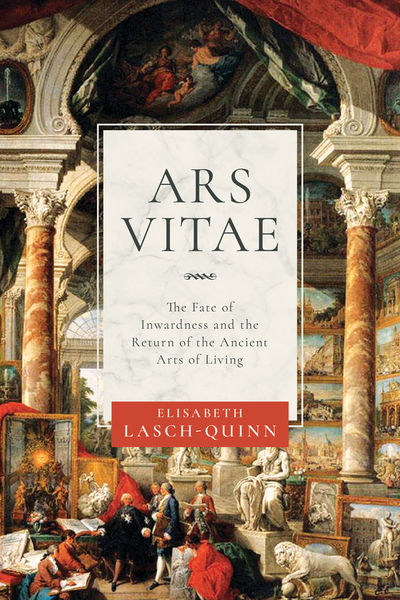 Ars Vitae
Ars Vitae
Despite the flood of self-help guides and our current therapeutic culture, feelings of alienation and spiritual longing continue to grip modern society. Elisabeth Lasch-Quinn, whose earlier book Race Experts was reviewed by the New York Times Book Review and The Washington Post, offers a fresh solution: a return to classic philosophy and the cultivation of an inner life. In Ars Vitae, Lasch-Quinn examines how Gnosticism, Stoicism, Epicureanism, Cynicism, and Platonism have reappeared in American culture and argues that taken together, they offer a better path toward well-being and happiness than current obsessions with the self. The sweep and comprehensiveness of this book are remarkable. Lasch-Quinn uses a panoramic range of sources, including philosophy, literature, films, and other artifacts of popular culture. This book will appeal to intellectual readers with an interest in philosophy or in an alternative framework to a more meaningful and fulfilling life. Ars Vitae sounds a clarion call to take back philosophy as part of our everyday lives. It proposes a way to do so, sifting through the ruins of long-forgotten and recent history alike for any shards helpful in piecing together the coherence of a moral framework that allows us ways to move forward toward the life we want and need.
Ars Vitae has received generous advance praise:
"With impressive learning and admirable literary grace, Elisabeth Lasch-Quinn calls on us to take seriously again what Cicero called 'the art of living.' Drawing on a range of classical thinkers and schools, she demonstrates how true inwardness and self-knowledge are the antidotes to shallow consumerism and a narcissistic preoccupation with the self. This is a gem of a book, scholarship at the service of self-understanding and the search for truth." —Daniel J. Mahoney, author of The Conservative Foundations of Liberal Order
"At a time when we are all too aware of the absence of a web of meaning to guide our life, it helps to draw on the moral resources provided by what Elisabeth Lasch-Quinn calls the 'ancient arts of living.' She takes us on a philosophical journey to give us insights into the predicament we face in our inward life. After reading her beautifully written Ars Vitae, you, too, will want to embark on such a journey." —Frank Furedi, author of Why Borders Matter
"Specifically human life is about trying to discover and live the good life. When our politics and culture deny that, such searches reappear in both good and distorted ways, as Elisabeth Lasch-Quinn details in her fine and probing new book Ars Vitae. One can only agree with her in recommending Plato and Plotinus as transcending the element of immanent rationalist functionalism that threatens to compromise Aristotle's approach to the virtues." —John Milbank, author of Theology and Social Theory
“Elisabeth Lasch-Quinn displays here an amazing familiarity with a vast and technical scholarly literature on ancient philosophy—not only on its relevance to everyday life in present-day America. Her understanding of such sources is juxtaposed with her insight into present-day popular culture—it’s all quite astonishing. If ever a book deserved publishing, it is this one.” —Daniel Walker Howe, Pulitzer Prize–winning author of What Hath God Wrought
“In Ars Vitae, Elisabeth Lasch-Quinn provides a new way for us to think about the ways in which modern Americans strive to find meaning in, and strive to realize the potential of, their lives. The book sets into relief the peculiar ways in which Americans grasp at the question of how to live and ultimately calls for a new inwardness in American life. This is a masterwork of a book.” —Susan McWilliams Barndt, author of The American Road Trip and American Political Thought
"An astute archeologist of ideas, Elisabeth Lasch-Quinn spies the finest remnants of our classical past lurking within the motley mess of contemporary life. In Ars Vitae, she reminds us, as Faulkner once did, that the past is not dead and that the old Greco-Roman approaches to the art of living still constellate our thoughts and customize our actions, consciously or not." —David Bosworth, author of Conscientious Thinking
Read this Interview with Elisabeth Lasch-Quinn.
GILES FAMILY FUND RECIPIENT
Ars Vitae was selected as the 2020 Giles Family Fund Recipient. The Giles Family Fund supports the work and mission of the University of Notre Dame Press to publish books that engage the most enduring questions of our time. Each year the endowment helps underwrite the publication and promotion of a book that sparks intellectual exploration and expands the reach and impact of the university.
Ars Vitae is available in print and digital editions from the University of Notre Dame Press. For additional information, or a review copy, contact: Kathryn Pitts, pitts.5@nd.edu, 574.631.3267.